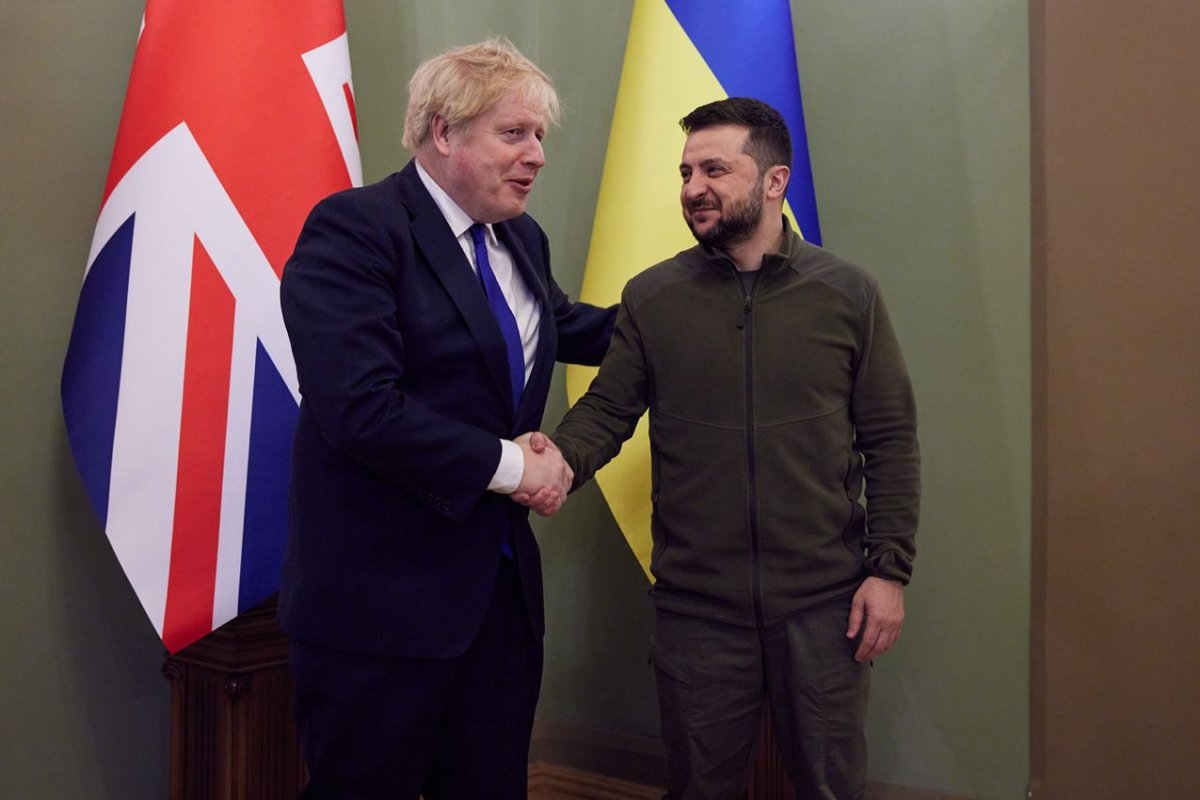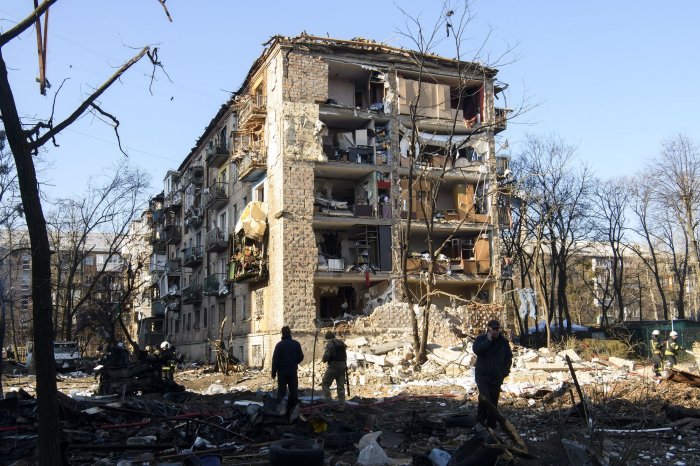British Prime Minister Boris Johnson unveils new economic and military aid during his visit to Ukraine
British Prime Minister Johnson (left) discussed military and economic aid with Ukrainian President Volodymyr Zelensky in kyiv, Ukraine on Saturday. Photo by Ukrainian Presidential Press Service/Telegram
April 9 (UPI) — Continuing European outreach to Ukraine amid the Russian invasion, British Prime Minister Boris Johnson traveled to Kyiv on Saturday to outline a new package of financial and military aid to the beleaguered country.
“Today I met my friend [Ukrainian President Volodymyr Zelensky] to Kyiv to show our unwavering support for the people of Ukraine,” Johnson wrote on Twitter. .”
Britain is ‘stepping up’ its own military and economic support while convening ‘a global alliance to end this tragedy and ensure Ukraine’s survival and prosperity as a free and sovereign nation’, the Prime Minister said. minister in a statement issued.
The new aid will include weapons such as 120 armored vehicles and new anti-ship missile systems to support Ukraine “in this crucial phase as Russia’s unlawful assault continues”.
The package also includes additional economic support, securing an additional $500m World Bank loan to Ukraine, bringing Britain’s total loan guarantees to $1bn.
Johnson “is one of the most principled opponents of the Russian invasion, a leader in pushing for sanctions against Russia and in defense support for Ukraine,” Zelensky said in telegram post. “Welcome to kyiv, my friend! »
Johnson’s visit came a day after the European Union announced it was returning its diplomatic presence in Kyiv after evacuating the Ukrainian capital and opened an accelerated process for the country to join the bloc.
EU external relations chief Josep Borrell said the diplomatic delegation was returning to Kyiv on a joint visit to Ukraine with European Commission President Ursula von der Leyen on Friday.
“With this visit, the European Union returns to Kyiv”, borell said. “I mean literally: our head of our delegation is back here, so that we can work even more directly and closely with the Ukrainian authorities.”
The EU delegation left the capital in February as Russian attacks on the city and its suburbs intensified and operates from Rzeszow, Poland, from where it coordinated European and international aid to Ukraine. .
Some EU diplomatic staff will remain in Poland to continue these cooperative efforts, Borrell said.
EU officials visited the kyiv suburb of Bucha, which was liberated this month from Russian occupiers.
City authorities estimated that 360 civilians, including at least 10 children, were killed in Bucha, according to Liudmyla Denisova, Human Rights Ombudsman of the Ukrainian Parliament.
“Europe’s humanity has been shattered” in the city, von der Leyen said in a joint press conference with Zelensky.
“This war is a challenge for the entire international community,” she says. “And this is a watershed moment. Will heinous devastation win or will humanity prevail? Will the law of force prevail or is it the rule of law? Are there constant conflicts and struggles or a future of common prosperity?
She noted that the EU had allocated more than $900 million to Ukraine’s armed forces with “more to come” and that member states such as Slovakia were “delivering military equipment on an unprecedented scale”.
The EU is also providing an additional $920 million in financial assistance and supporting the resettlement of internal and external Ukrainian refugees through the Stand Up for Ukraine Pledge Event.
More importantly, von der Leyen presented Zelensky with a questionnaire to be submitted as the first step in Ukraine’s fast-track application process to join the 27-member bloc.
“This is where your path to the European Union begins,” she said.



Comments are closed.